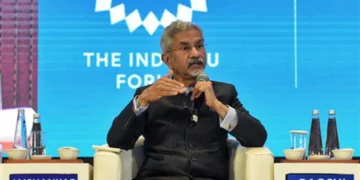Blitz Bureau
British factory activity contracted very slightly last month for the first time since April, pushed lower by fewer new orders and a broader lack of optimism in the runup to the Labour government’s first budget, a major survey showed on November 1, according to Reuters.
The final reading for manufacturing dropped to 49.9 points in October, according to S&P Global, below the 50 index level that marks a contraction. The initial “flash” reading had been 50.3. “UK manufacturing started the final quarter of the year on an uncertain footing amid speculation on government policies ahead of the Budget, which was widely reported to have led to a wait-and-see approach on investment and spending,” S&P director Rob Dobson said.
Finance minister Rachel Reeves delivered the Labour Party’s first budget in 14 years on October 30, raising taxes by 40 billion pounds ($51.4 billion) – including a 25 billion pound increase in employment taxes – to fund higher public investment.
British government bonds and share prices fell on October31 as investors judged that the stimulus in the budget would boost inflation and make the Bank of England to cut interest rates more slowly.
The PMI showed that within the manufacturing sector, growth in input costs slowed very sharply to its weakest this year – reflecting cheaper prices for some chemicals and metals- while manufacturers’ selling prices rose modestly.
The BoE has been most focused on continued high inflation in Britain’s services industry, but Dobson said the slower growth in industrial prices might provide some headroom for policymakers to support demand if growth weakened.
The manufacturing PMI showed that overall output edged up, though by the weakest margin since April, while new orders fell at the sharpest pace since then too.

































